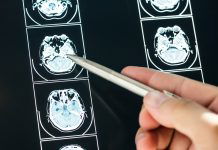
A recent study led by Dr. Cande Ananth, Chief of Epidemiology and Biostatistics at the Robert Wood Johnson Medical School in New Jersey, found an elevated risk of stroke in women who became pregnant after fertility treatments.
The study analyzed 31 million hospital deliveries in 28 states from 2010 to 2018, which included over 287,000 women who had undergone fertility treatments.
Key Findings
Women who underwent fertility treatments had twice the risk of hemorrhagic stroke, a condition where bleeding occurs in the brain.
They also had a 55% greater risk of ischemic stroke, a condition where the blood supply to the brain stops.
The absolute number of strokes observed in the study was low, with 37 women hospitalized for stroke for every 100,000 women who had undergone fertility treatment.
Nevertheless, the findings suggest that women seeking fertility treatment should be made aware of these risks.
Possible Explanations
Dr. Ananth suggested that the elevated stroke risk could be due to physiological changes caused by high levels of estrogen during fertility treatments.
Estrogen can increase blood clotting, a significant risk factor for stroke.
“We know that women who receive infertility treatment have certain vascular complications, typically an increased risk of preeclampsia and placental abruption,” Ananth added.
Contrasting Findings
Interestingly, another study involving 2.4 million women in Scandinavian countries did not find these risks, highlighting the need for further research to confirm these findings.
Implications
The study poses essential questions about the safety of fertility treatments, which are involved in approximately 2% of U.S. births.
While fertility treatments are generally considered safe, the elevated stroke risk indicates that clinicians and prospective parents should weigh these risks carefully.
What’s Next?
Given the contrasting findings in the Scandinavian study, more research is required to confirm the observed risks definitively.
Nevertheless, awareness of these potential risks could be crucial for healthcare providers in informing patients adequately and possibly adapting treatment protocols to mitigate risks.
So, if you’re considering fertility treatments, discuss the risks and benefits comprehensively with your healthcare provider to make an informed decision.
If you care about stroke, please read studies about how to eat to prevent stroke, and scientists find a breakfast linked to better blood vessel health.
For more information about health, please see recent studies about how the Mediterranean diet could protect your brain health, and wild blueberries can benefit your heart and brain.
The study was published in JAMA Network Open.
Follow us on Twitter for more articles about this topic.
Copyright © 2023 Knowridge Science Report. All rights reserved.



